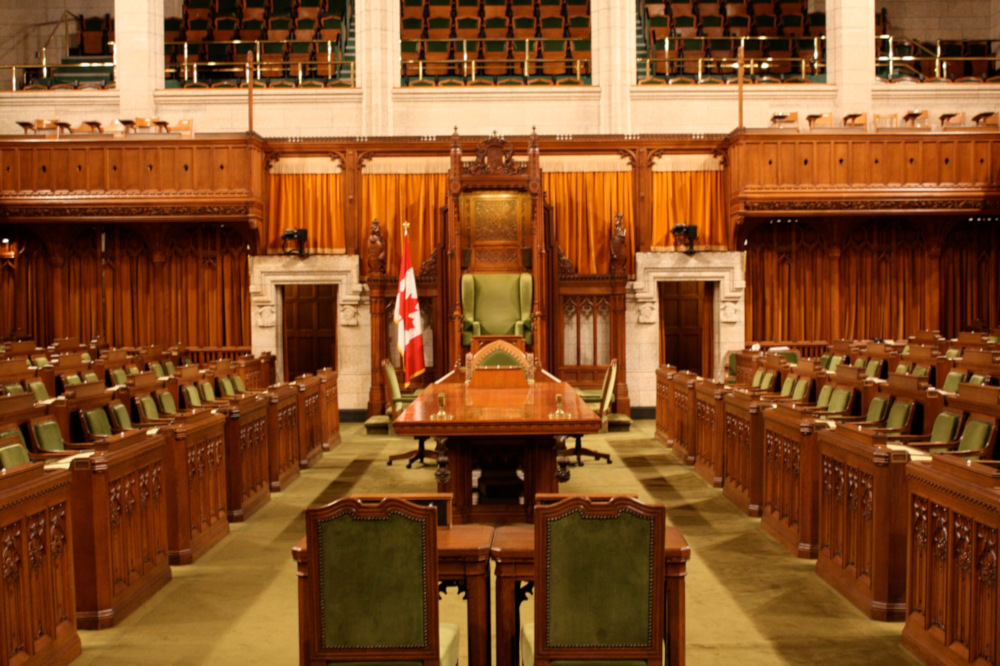The Conservatives got more votes than any other party. Congratulations, Andrew Scheer, on becoming the 24th prime minister of Canada.
Not so fast, big boy. Canada is not a republic and we don’t elect a president. A federal election is 338 simultaneous elections to select members to sit in the House of Commons. We elect a parliament, not a government.
So, who’s prime minister?
Justin Trudeau was prime minister going into the election. He remains prime minister until he resigns or is dismissed by the Governor General. Or dies. (No one wishes for the latter. Except on Twitter.) Trudeau’s Liberal party emerged with a plurality of seats, so he continues as prime minister if he wishes. Which he does.
So, business as usual?
Not at all. Trudeau’s Liberal party lost more than 25 seats and no longer has a majority in the 338-seat House of Commons.
So, how does he stay as prime minister?
Canadian voters elected a hung parliament. No party has a majority. The Liberals will need the support of at least one other party. Both the NDP and the Bloc Québécois have enough seats to ensure a Liberal government can pass legislation. Playing footsie with the Bloc is problematic, since Bloc head (Tête carrée) Yves-François Blanchet is a sovereigntist. The NDP might be the fourth party in the House of Commons, but they are a natural partner for the Liberals and well placed to get policy crafted into law.
So, a coalition?
Not so fast. A coalition usually means a formal agreement where all parties take cabinet positions. In the federal parliament, the only coalition was formed during the First World War in 1917 when Conservative prime minister Robert Borden formed a Unionist government, luring some pro-conscription Liberals over to his side. The coalition dissolved after the war.
The agreement between John Horgan’s NDP and the Green party in B.C. is not a formal coalition. The two parties have a Confidence and Supply Agreement in which the smaller party backs the NDP on budgets and any confidence motions that might lead to the government’s defeat. The Greens are consulted on policy, but do not hold any cabinet seats.
Other minority parliaments survive on an issue-by-issue basis. One factor favouring the Liberals’ hold on power is the reluctance of any of the other minor parties to return to the hustings any time soon. Coffers are empty and the Bloc and the NDP are satisfied with the results and will not want to soon roll the dice.
So, what’s the process?
Trudeau will meet with NDP Leader Jagmeet Singh. The NDP might have specific demands in exchange for support, although it is more likely they will have a general agreement on some policies. “When we get back to Ottawa, New Democrats are going to be working hard to make sure your life is better,” Singh said in his victory speech in Burnaby on Monday night. “New Democrats are going to Ottawa to fight for you.” The NDP’s strength at the bargaining table is lessened by the party’s inability (and likely unwillingness) to risk their advantage today in another election.
How have minority parliaments operated in the past?
Canadians have elected hung parliaments in 1957, 1962, 1963, 1965, 1972, 1979, 2004, 2006 and 2008. It’s common. Four provinces — B.C., P.E.I., New Brunswick, and Newfoundland and Labrador — currently have minority governments.
Progressives of a certain age have fond memories of a Liberal minority government under Pierre Trudeau supported by the NDP under David Lewis. Before that, the minority Liberals led by Lester Pearson introduced a national medicare program with backing from Tommy Douglas and the NDP. A national pharmacare program could be the result of a fruitful collaboration between the Liberals and the NDP. (The NDP election-night chant of “Tax the rich!” likely did nothing but tighten the knot in the stomachs of high-echelon Liberals.) The two parties might find common ground on such issues as reconciliation, climate change, and pocketbook matters such as cell-phone bills and student debt.
What happens now?
Trudeau names a new cabinet. He’s lost some prominent ministers and he might take the opportunity to swap out some underperformers for rising stars. He’ll also try to establish regional and gender balance in the cabinet. Because it’s 2019. One serious difficulty he faces is a lack of representation on the Prairies.
For how long is this going to last?
Minority governments seem to last about two years. Some predicted the minority B.C. government wouldn’t last two months, yet it seems to be cruising to a four-year term.
Constitutional expert Philippe Lagassé, an associate professor at Carleton University in Ottawa, said he did not expect the Governor General to make any discretionary decisions in the new parliament. Even if the government only lasts six to nine months, he did not see any other viable alternative government in the composition of the House of Commons. If the Trudeau government lost a vote of confidence after six months or so, it would lead to dissolution and a new election.
Any final advice?
Strap on your seat belts. It’s gonna be a bumpy ride. ![]()
Read more: Election 2019, Federal Politics

















Tyee Commenting Guidelines
Comments that violate guidelines risk being deleted, and violations may result in a temporary or permanent user ban. Maintain the spirit of good conversation to stay in the discussion.
*Please note The Tyee is not a forum for spreading misinformation about COVID-19, denying its existence or minimizing its risk to public health.
Do:
Do not: